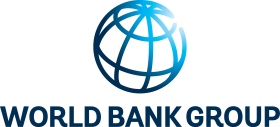The importance of the monitoring and evaluation (M&E) function within public administration
has been magnified by the growing voice of civil society,
which has brought the issues of good governance and more
effective public administration to the fore. The global
trend towards more accountable, responsive and efficient
government has bolstered the appeal for M&E capacity
development, which has been the central focus of efforts to
improve governance in the context of a comprehensive
development framework. Evaluation has become increasingly
important in Africa owing to stagnant, and negative economic
growth rates, together with concerns related to governance,
and doubts about the efficacy of development assistance.
These are selected proceedings from the seminar and workshop
on "Monitoring and Evaluation Capacity Development for
Africa" as a follow-up to the regional seminar, to
foster networking among M&E practitioners, and to share
knowledge on M&E in the context of improved governance,
accountability, and effective development delivery, and
results. In addressing monitoring and evaluation, and the
development challenge in Africa, selected topics in Part I,
vary from the policy challenge as viewed from the African
Development Bank perspective, through new dimensions of
poverty-focused evaluation within a comprehensive
development framework, to key challenges for M&E
practice in Africa. Part II offers an overview of evaluation
capacity development in selected African states, and its
role in rebuilding demand and infrastructure for M&E. In
addressing evaluation capacity development through new
methodologies, Part III examines how to focus the M&E of
development programs on changes in partners, and the
implications of decentralized delivery for national M&E,
while Part IV reviews African sector experiences, through
case studies and implications for M&E. Finally, Parts V,
VI and VII address how to develop national evaluation
associations, and opportunities for international
cooperation; looking at the future through National Action
Plans for 2001; and, the way forward.
Autores y editores
Development Bank of Southern Africa
African Development Bank
World Bank
World Bank Group (WB)
The World Bank is a vital source of financial and technical assistance to developing countries around the world. We are not a bank in the ordinary sense but a unique partnership to reduce poverty and support development.
Proveedor de datos
World Bank Group (WB)
The World Bank is a vital source of financial and technical assistance to developing countries around the world. We are not a bank in the ordinary sense but a unique partnership to reduce poverty and support development.


